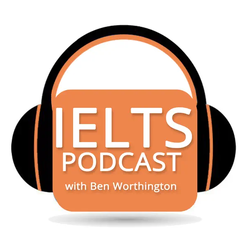In this tutorial, we discuss renewable energy IELTS Topic Ideas, grammar, vocabulary and sample answers.
We look at:
Specific vocabulary and grammar points related to Renewable Energy
Pros and Cons regarding Renewable Energy
Model essay on Renewable Energy
Sample answers for IELTS Speaking Part 3 questions about Renewable Energy
Table of Contents
Introduction
Grammar Point Covered
Pros and Cons Regarding Renewable Energy
Topic Specific Vocabulary Collocations and Phrases
Model Sentences using Renewable Energy Phrases and Third Conditional
Model Essay about Renewable Energy
Speaking Part 3 Questions and Model Answers
Further Reading
Joke
Introduction
Renewable energy is an increasingly relevant topic in contemporary society, due to its potential to combat the global issue of climate change. This article will delve into the multifaceted aspects of renewable energy, focusing on its pros and cons, specific vocabulary and collocations, third conditional usage, and sample IELTS essay and answers.
Grammar Point Covered
The third conditional is a grammatical structure used in English to talk about unreal situations in the past. It involves the use of ‘if’, the past perfect tense in the ‘if clause’ (e.g., ‘if’ + ‘had’ + past participle), and ‘would have’ + past participle in the main clause. For example, “If I had studied more, I would have passed the exam”.
Pros and Cons Regarding Renewable Energy
Pros:
Renewable energy produces fewer emissions, thus combating climate change.
It is a sustainable and inexhaustible source of power.
Renewable energy sources, such as solar and wind, reduce dependence on fossil fuels.
Using renewable energy can potentially create numerous green jobs.
It reduces the risk of energy price spikes and energy security issues.
Renewable energy infrastructure promotes technological advancement.
It minimises water usage compared to traditional power plants.
Renewable energy can often be harnessed locally, reducing the need for long-distance transportation.
It contributes to social and economic development, particularly in rural areas.
Renewable energy systems can improve public health by reducing air and water pollution.
Cons:
Renewable energy sources are often dependent on weather conditions.
The initial investment for renewable energy infrastructure can be high.
Renewable energy technologies sometimes occupy large land areas.
Energy storage can be a challenge due to the intermittent nature of renewable sources.
There can be negative environmental impacts during the manufacturing, installation, and disposal of renewable energy technologies.
Some forms of renewable energy, like biomass, can still contribute to carbon emissions.
Upgrading the grid infrastructure to accommodate renewable energy can be costly.
Renewable energy may not be sufficient to meet the increasing global energy demand.
Some renewable energy sources, such as wind and hydro, can cause disturbances to local wildlife.
Decommissioning and recycling of renewable energy installations can present challenges.
Topic Specific Vocabulary Collocations and Phrases
Carbon footprint
Energy efficiency
Greenhouse gas emissions
Sustainable development
Renewable resources
Solar power
Wind turbines
Hydroelectric power
Geothermal energy
Biomass energy
Model Sentences using the Renewable Energy Phrases and Third Conditional
If we had focused on energy efficiency earlier, we wouldn’t be facing such severe climate issues.
If more countries had committed to reducing greenhouse gas emissions, global warming might not have been such a pressing issue.
Had we invested more in renewable resources like solar power and wind turbines, we might have reduced our dependence on fossil fuels.
If the government had promoted hydroelectric power, we could have mitigated some of the negative impacts of coal power plants.
If we had utilised geothermal energy more effectively, we could have significantly decreased our carbon footprint.
Had our country adopted sustainable development policies earlier, we would have been in a better position to combat climate change.
If more investment had gone into biomass energy technology, we might have seen a faster transition away from fossil fuels.
Had we exploited renewable resources more efficiently, we wouldn’t have such a heavy reliance on oil and gas.
If we had put more resources into solar power, we could have created more jobs in this sector.
If our society had embraced the benefits of wind turbines earlier, we might have made more progress towards energy independence.
Model Essay about Renewable Energy
Question: Discuss the benefits and drawbacks of renewable energy. To what extent do you think it can replace fossil fuels?
Introduction
Renewable energy, harnessed from sustainable resources such as wind, sunlight, and water, is regarded as a potent solution to our global energy crisis. However, while its benefits are substantial, there are also drawbacks to its widespread adoption.
Body Paragraph 1
Undeniably, renewable energy has considerable advantages. Firstly, it plays a pivotal role in reducing greenhouse gas emissions, thereby mitigating the impacts of climate change. Furthermore, renewable energy sources, such as solar power and wind turbines, are inexhaustible, unlike fossil fuels. If countries had invested significantly in these forms of energy, we could have possibly alleviated the current climate crisis. Therefore, renewable energy promotes sustainable development, offering a viable path towards a cleaner and healthier environment.
Body Paragraph 2
Despite these benefits, it is essential to consider the associated challenges. Renewable energy technologies often require substantial upfront
investment, which can be a deterrent for many developing countries. Also, the variability of renewable sources like wind and solar can lead to inconsistencies in power generation. Furthermore, the use of renewable resources such as bioenergy might not be completely carbon-neutral, and if managed poorly, it could still contribute to carbon emissions.
Conclusion
While renewable energy has its challenges, its potential benefits in terms of environmental sustainability and energy security cannot be overstated. While it might not be feasible to entirely replace fossil fuels at present, strategic investment and technological advancements could substantially increase the share of renewable energy in the global energy mix. If we had prioritised renewable energy decades ago, we might not be grappling with the dire consequences of climate change today.
Speaking Part 3 Questions and Model Answers
Question 1: Why is renewable energy important?
Well, in my view, renewable energy is important for several reasons. Firstly, it helps to reduce our carbon footprint and therefore combat climate change. Secondly, sources like solar power and wind turbines are essentially infinite, unlike fossil fuels. Also, the adoption of renewable energy can stimulate job creation in new industries. All in all, if we had shifted to renewable energy earlier, we would have been better equipped to tackle our current environmental challenges.
Question 2: Should governments invest more in renewable energy?
Absolutely, I believe that governments should certainly invest more in renewable energy. It’s not just about environmental benefits, but also about future energy security. As we know, fossil fuels are finite resources and we can’t rely on them forever. Plus, investing in renewable energy can also boost the economy by creating new jobs. If we had put more money into renewable energy, we could have made more progress towards a sustainable future.
Question 3: How can individuals contribute to the use of renewable energy?
Well, there are several ways individuals can contribute. One of the most effective is by using solar panels on their homes. This not only reduces their energy bills but also helps to decrease reliance on fossil fuels. People can also choose to purchase electric cars powered by renewable energy, or use public transportation or bicycles to reduce their carbon footprint. And last but not least, they can advocate for renewable energy policies in their communities. If we had all started taking these steps earlier, our collective impact would have been significant.
Question 4: How has the use of renewable energy changed over time?
That’s an interesting question. Over the past few decades, the use of renewable energy has significantly increased. Many more homes and businesses are powered by renewables today than in the past. This is partly due to advancements in technology that have made renewable energy sources like solar and wind more efficient and affordable. It’s also a result of increased public awareness about the importance of sustainable living. If this trend continues, we might see a world powered primarily by renewable energy in the future.
Question 5: Is renewable energy common in your country?
Well, to be honest, it’s a mixed bag. While there has been a growing trend towards renewable energy in recent years, the transition hasn’t been uniform across the country. Some areas have seen a significant increase in the use of renewables, particularly where there are
abundant resources such as sunlight or wind. Other areas, particularly those heavily reliant on traditional industries like coal, have been slower to adapt. If there had been a more concerted national effort, we might have seen more widespread adoption of renewable energy by now.
Further Reading
BBC – Climate change: Wind and solar power surge worldwide
Nature – The role of renewable energy in the global energy transformation
Wikipedia – Renewable energy
UK Government – Renewable energy planning
University of Cambridge – Renewable energy needs huge upscaling to meet global energy demands
Joke
Why don’t renewable energy sources ever play hide and seek? Because they always get spotted — even when it’s cloudy, the sun still shines, and the wind always gives them away!
Join many other students who have achieved IELTS success with our online course or get instant writing feedback with our online IELTS essay checker.
You can download or listen to the audio version here:
| Direct Download Here | Stitcher | iTunes | Spotify |
The post Renewable Energy: Topic Ideas, Grammar, Vocabulary and Sample Answers appeared first on IELTS Podcast.

